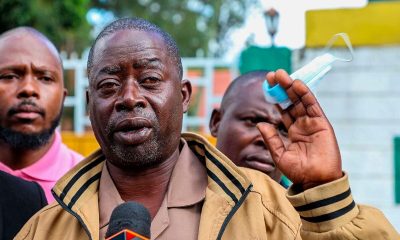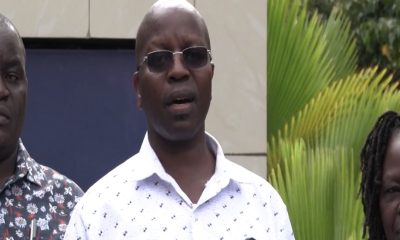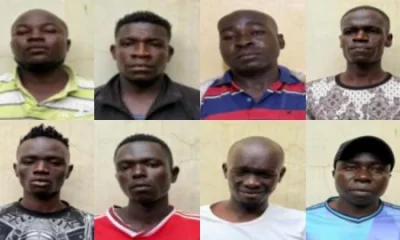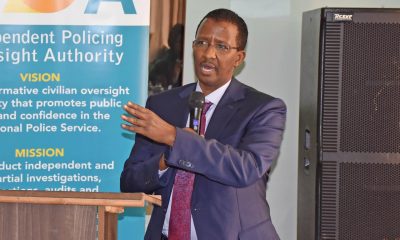News
Journalist Investigating Migori Judge Over Sh10 Million Bribery Arrested and Released After Public Outcry
The trouble began when Kweyu attempted to contact Judge Nyagaka for his right of reply, a standard journalistic practice that ensures fairness and balance in reporting.
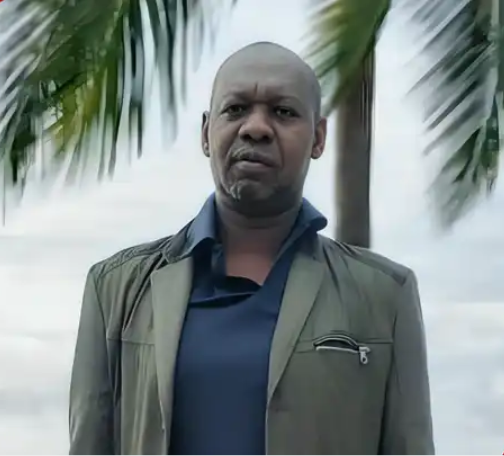
Standard Group journalist Collins Kweyu has been released from Central Police Station following his dramatic arrest on Friday evening while investigating corruption allegations against Migori-based Judge Fred Nyagaka over a Sh10 million bribery scandal.
Kweyu, who spent the night in police custody, was freed Saturday morning after the Director of Criminal Investigations Amin Mohamed ordered his immediate release amid mounting pressure from media rights organizations and civil society groups.
Speaking to the press after his release, Kweyu revealed that his investigation centered on a controversial land sale case in Eldoret where Judge Nyagaka allegedly received Sh10 million to deliver a favorable ruling.
The journalist said credible sources had tipped him off about the corrupt dealings, prompting him to pursue the story in line with his professional duties.
“I had reliable information about this land case and the alleged bribery. As a journalist, it was my responsibility to investigate these serious allegations,” Kweyu explained during a video statement released Saturday morning.
The trouble began when Kweyu attempted to contact Judge Nyagaka for his right of reply, a standard journalistic practice that ensures fairness and balance in reporting.
However, instead of receiving a response to his queries, the journalist found himself trapped in what he described as a setup that led to his arrest in Nairobi.
The arrest, which occurred late Friday evening, was immediately condemned by the Crime Journalists Association of Kenya and the Kenya Union of Journalists, who viewed it as a deliberate attempt to silence press freedom and obstruct legitimate investigative journalism.
CJAK Secretary General Brian Obuya described the arrest as “a blatant attempt to silence a journalist investigating possible corruption within the judiciary,” adding that using state machinery against media practitioners constituted “an attack not only on press freedom but also on the very rule of law itself.”
The timing of the arrest particularly irked media rights advocates, as it was executed on a Friday evening, ensuring Kweyu would remain in detention over the weekend until courts resumed on Monday.
Police at Central Police Station claimed the arrest order originated from Migori detectives investigating alleged cybercrime involving Kweyu and two others.
The case has drawn parallels to the death of journalist Albert Ojuang, who died under unclear circumstances while in police custody, with CJAK warning authorities against allowing history to repeat itself.
Amnesty International joined the chorus of condemnation, calling for Kweyu’s safety while in custody and demanding he be accorded full rights as a suspect in detention.
The journalist’s ordeal began when he was allegedly deceived into attending a meeting at a Nairobi restaurant, only to be confronted and whisked away by police officers without being properly informed of the charges against him.
Court orders were reportedly issued to search Kweyu’s residence and seize his computer equipment, moves that CJAK interpreted as attempts to uncover his sources and compromise the confidentiality that is fundamental to investigative journalism.
Following his release, Kweyu demonstrated remarkable resilience and professional commitment, vowing to continue his investigative work without succumbing to fear or intimidation.
His stance reflects the broader struggle facing Kenyan journalists who often risk their safety while exposing corruption and holding public officials accountable.
The case highlights the ongoing tensions between media freedom and powerful interests seeking to suppress unfavorable coverage. It also underscores the crucial role of press freedom organizations in defending journalists’ rights to investigate matters of public interest without fear of reprisal.
As Kweyu returns to his newsroom, his experience serves as both a cautionary tale about the risks facing investigative journalists in Kenya and a testament to the power of collective action in defending press freedom when media practitioners face intimidation and harassment.
The allegations against Judge Nyagaka remain under investigation, and the public will be watching to see whether the judicial system will address the corruption claims with the seriousness they deserve, particularly given the lengths allegedly taken to silence the journalist pursuing the story.
Kenya Insights allows guest blogging, if you want to be published on Kenya’s most authoritative and accurate blog, have an expose, news TIPS, story angles, human interest stories, drop us an email on [email protected] or via Telegram
-

 News2 weeks ago
News2 weeks agoTHE FIRM IN THE DOCK: How Kaplan and Stratton Became the Most Scrutinised Law Firm in Kenya
-

 Economy2 weeks ago
Economy2 weeks agoIran Demands Arrest, Prosecution Of Kenya’s Cup of Joe Director Director Over Sh2.6 Billion Tea Fraud
-

 Grapevine1 week ago
Grapevine1 week agoA UN Director Based in Nairobi Was Deep in an Intimate Friendship With Epstein — He Even Sent Her a Sex Toy
-

 Business2 weeks ago
Business2 weeks agoKPC IPO Set To Flop Ahead Of Deadline, Here’s The Experts’ Take
-

 Politics2 weeks ago
Politics2 weeks agoPresident Ruto and Uhuru Reportedly Gets In A Heated Argument In A Closed-Door Meeting With Ethiopian PM Abiy Ahmed
-

 Investigations1 week ago
Investigations1 week agoHow Mexico Drug Lord’s Girlfriend Gave Him Away
-

 Business2 weeks ago
Business2 weeks agoSafaricom Faces Avalanche of Lawsuits Over Data Privacy as Acquitted Student Demands Sh200mn Compensation in 48 Hours
-

 Investigations2 weeks ago
Investigations2 weeks agoKenya’s DCI Opens Probe on Russian Man Who Secretly Filmed Sex Escapades With Women — But There’s a Slim Chance They’ll Ever Get Him

